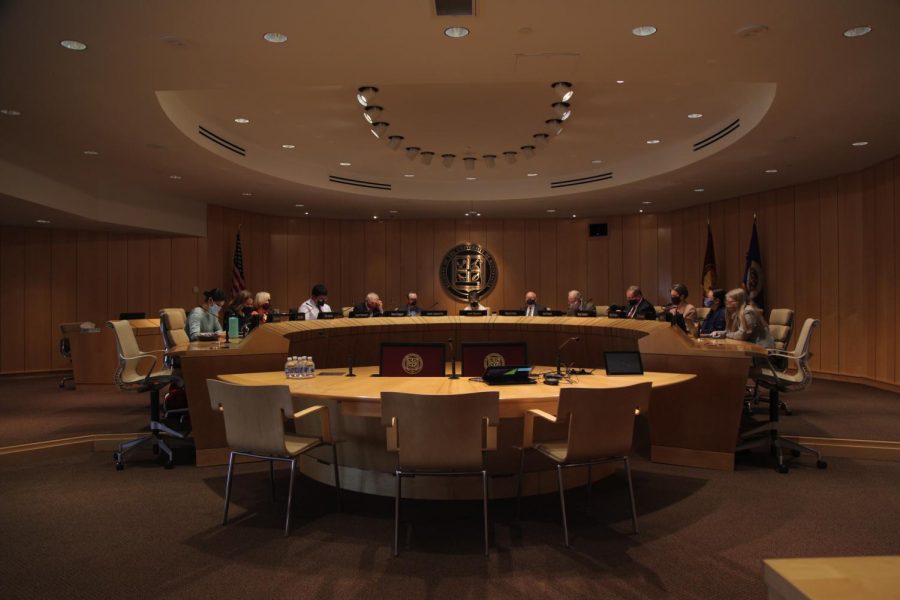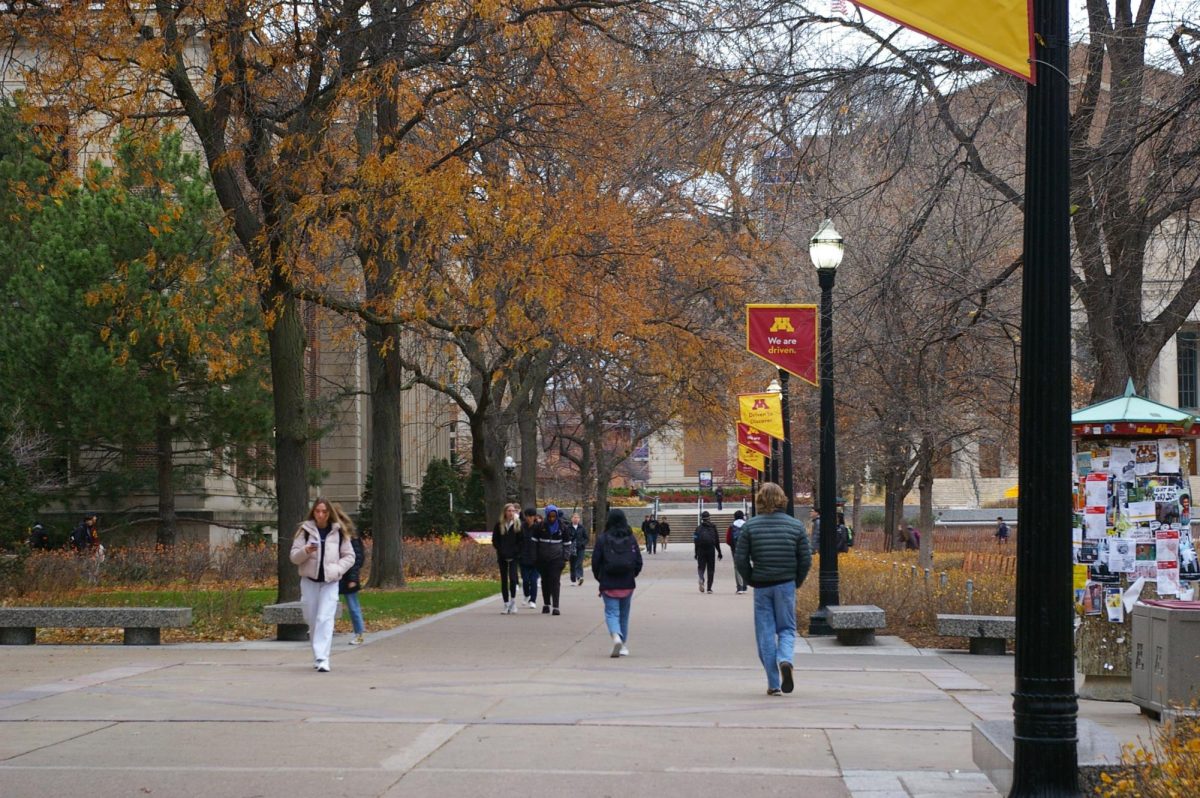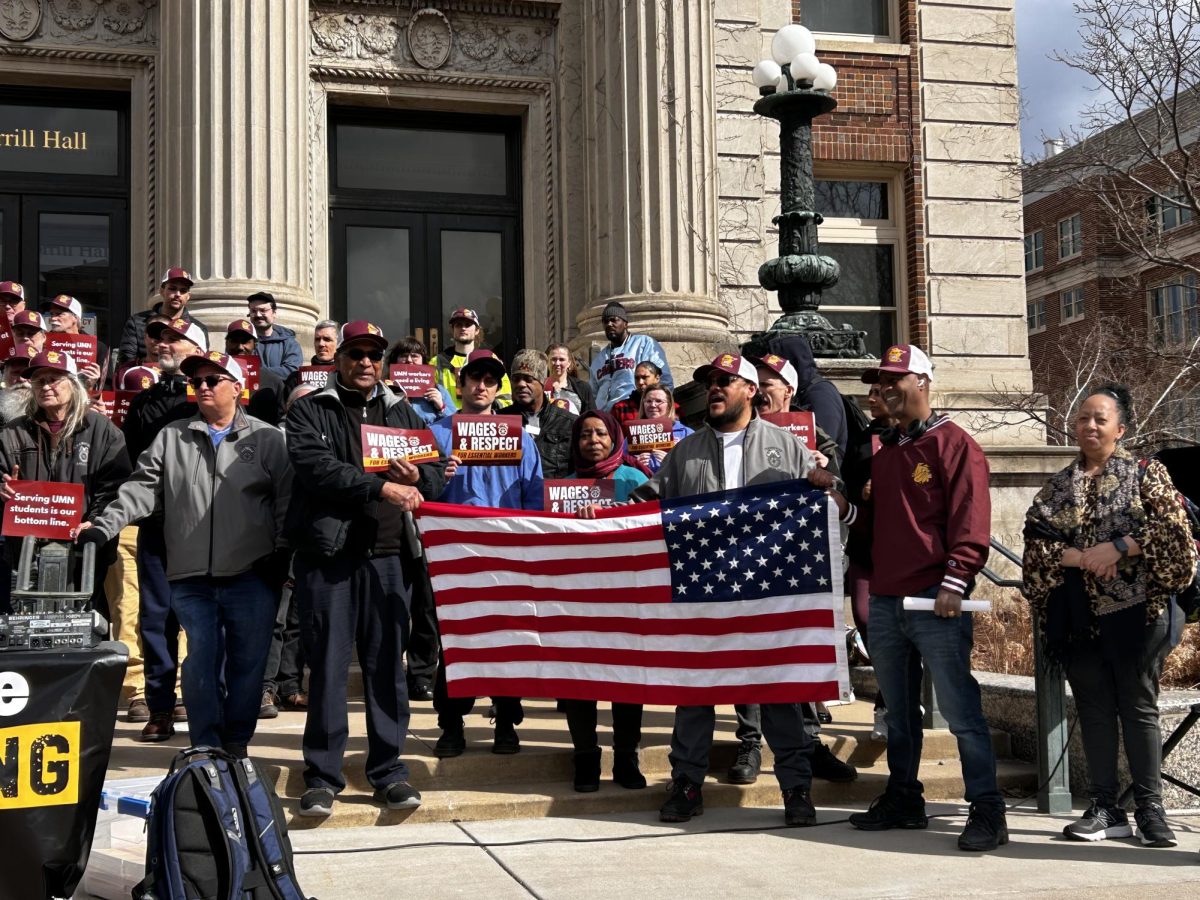The University of Minnesota Board of Regents’ October meeting was marked by protests from both University union workers and members of Students for a Democratic Society, as they demanded pay increases and civilian accountability for University police, respectively.
Protesters entered the boardroom at McNamara Alumni Center both Thursday and Friday, where many regents and administrators were attending the meetings in-person. Despite brief interruptions, the board continued to cover their regular agenda items, including lessons learned from the COVID-19 pandemic, academic updates regarding the fall semester and received updates on COVID-19 vaccination progress.
Demanding change at the University
Representatives from the American Federation of State, County and Municipal Workers (AFSCME) protested at the Thursday meeting in an effort to communicate their demands with the University, which include increased pay for essential workers to reflect their effort during the pandemic and improved equity in the workplace.
Cherrene Horazuk, president of AFSCME 3800, said they are tired of not being a priority for University leadership. AFSCME also protested at a board meeting in 2019, when the two-year contract was last up for negotiation.
“Some of our main contract demands include meaningful raises that keep up with the cost of living and essential pay for essential workers,” Horazuk said as she addressed the board during the protest.
Contract negotiations with the University have been ongoing since June. In addition to pay increases, AFSCME is demanding more flexibility in work modality. According to recent reporting from the Minnesota Daily, clerical and healthcare workers have not been presented with flexible work options, such as the ability to work from home, while other employees have.
Students for a Democratic Society also protested at the Friday meeting. They demanded the University implement a civilian council to oversee University of Minnesota Police Department (UMPD) accountability. They also demanded UMPD cut ties with the Minneapolis Police Department (MPD) and other Metro police forces.
In both incidents, most regents left the room after calls for order were not acknowledged and were ignored and the decision was made to recess the meeting. Only regents Farnsworth and Thao-Urabe remained in the room to listen to AFSCME’s demands.
Vaccine response rates increase
President Joan Gabel also gave updates on the University’s COVID-19 vaccination rates. The response rate has increased by 30% since Gabel’s last update at the September meeting. 89% of students have reported their vaccination status, with 96% of those students being fully vaccinated. Student responses were due Oct. 8.
The response rate for faculty and staff has also increased by more than 10% since the last update from University leadership. Currently, 98% of staff and faculty have reported their vaccination status, with 94% of those respondents being fully vaccinated. Faculty and staff responses were due Sept. 17.
The future of class modality
As a result of the University holding most classes online during the 2020-21 academic year due to the COVID-19 pandemic, many teaching innovations were created in order to offer flexible work and learning modalities, according to Executive Vice President and Provost Rachel Croson.
Teaching innovations for courses developed over the past year include recorded lectures, virtual office hours, virtual guest speakers and making course materials available online through Canvas. New methods of testing students virtually have also been developed, Croson said.
Prior to the pandemic, about 90% of classes were held in-person, while this semester 77.5% of classes are held in-person. This change in course offerings is due to considering that some courses are better delivered in an alternative modality.
“Many reported they much preferred in-person learning. There were also those for whom distance teaching and learning led to better outcomes, so understanding that simply going back to all in-person instruction would leave those needs unmet, we designed a process to decide on course modalities for this fall,” Croson said at the meeting.
The process of assigning courses to their appropriate modality was based on student demand and if the instructor found that students were more engaged and had better learning outcomes with a particular modality. Changes were also made for instructors with a disability resource accommodation or health concerns.
The next Board of Regents meeting is currently scheduled for Dec. 16-17.



















